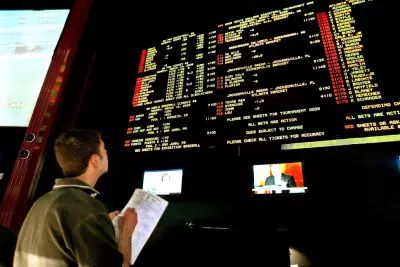 Even though hopes were high for legal sports wagering in the state of Ohio and its greenlighting by the end of this year, the possibility of such move declines with every passing day. It was recently confirmed that Larry Obhof, President of the state Senate claims that the proposed bill legalizing betting on sports events would be carefully examined following the ballot in November and the Senate is not likely to witness it by the end of 2018.
Even though hopes were high for legal sports wagering in the state of Ohio and its greenlighting by the end of this year, the possibility of such move declines with every passing day. It was recently confirmed that Larry Obhof, President of the state Senate claims that the proposed bill legalizing betting on sports events would be carefully examined following the ballot in November and the Senate is not likely to witness it by the end of 2018.
Mr. Obhof stated that according to him there should be a constitutional amendment on a state level allowing gambling on sports events within Ohio, meaning that the legislature does not have the capacity to implement such changes to the regulation. It could be recalled, that 2009 brought similar constitutional amendment aiming to legalize casino gambling in Ohio. With the help of more hearings on the proposed bill, this general uncertainty could be resolved and the next step could be made.
The lawmaker made it clear that he does not support this new for the state gaming offering and as far as he is concerned, he would show no support for a potential constitutional amendment. At the moment illegal sports betting is able to generate about $3 billion which are not invested back into the community but instead sinking into the deep pockets of illicit bookies. According to the projections introduced in order to support legalization, as much as $1 billion in the form of tax revenue would be generated throughout the first 12 months of sports betting operation in Ohio.
Senate President claimed that such estimations seem unrealistic and could be an exaggeration in reality. Since this year is not expected to see the official detailed review of the framework, sports wagering legalization might be delayed until 2020, which would mean that many of the states might have already launched such operation. This is, however, nothing new for the state, as the same thing happened back in 2012 when casino venues launched operation throughout Ohio. Gaming enthusiasts were already well-acquainted to casino facilities in Michigan and Pennsylvania located close to Ohio’s border.
More Work on the Sector Regulation is Needed
 A form of peer pressure is not a tendency unfamiliar in the world of lawmaking just like in every other sphere of our lives. When a given state decides to work towards legalization of given gaming offerings, be it horse racing, sports betting or gambling in general, its neighboring states are directly affected by it due to their proximity. Such is the case with the state of Ohio among many others, which is now considering legal sports betting and its potential in the long run.
A form of peer pressure is not a tendency unfamiliar in the world of lawmaking just like in every other sphere of our lives. When a given state decides to work towards legalization of given gaming offerings, be it horse racing, sports betting or gambling in general, its neighboring states are directly affected by it due to their proximity. Such is the case with the state of Ohio among many others, which is now considering legal sports betting and its potential in the long run.
As states such as West Virginia and Pennsylvania are now well into the scene and operating, Ohio’s lawmakers were prompted to work towards it as well. In its current state, the proposed Senate Bill 316 supported by Senator John Eklund, R-Munson Township lacks many of the featured of a full-bodied sports wagering set of rules and its general purpose is to indicate the consideration of legalization. The House has also introduced a similar laconic bill.
This happened mid-July and state lawmakers made it clear that they are in no rush to launch sports betting without the adequate regulations in place and negotiated with all parties involved, as to make the field appealing to both the casino operators and the community. They should pay special attention to one of the crucial factors for every wagering field – the tax applied on gaming revenue, which might make or break the performance of operators.
What should not be done is repeating the potentially crippling decisions of Pennsylvania lawmakers, who introduced a 36-percent tax, which appeared to intimidate casino developers. Casino games within Ohio are currently subjected to a 33-percent tax and this tendency of keeping taxes high should be overcome when sports betting set of rules is devised. Hollywood Casino Columbus, managed by Penn National might be one of the venues potentially providing its patrons with sports wagering once the operation launches.
Eldorado Scioto Downs is another well-known horse racing track which could capitalize on the betting fever, but for the time being no further information related to such offering has been issued. All developers concerned would have a saying on the matter once discussions commence. In the meantime, State Senator Bill Coley stated that he backs the idea of introducing special portals holding all information regarding wagering on sports events.
It would feature data to the liking of transactions taking place which could be further utilized by other jurisdictions in order to eliminate the potential crime rates and make for a safer field. Just like in every other gaming sector, anti-money laundering is a serious concern along with the specific for sports gambling match-fixing. This specifically dedicated data pool would strive to minimize potential illegal activities within the field.